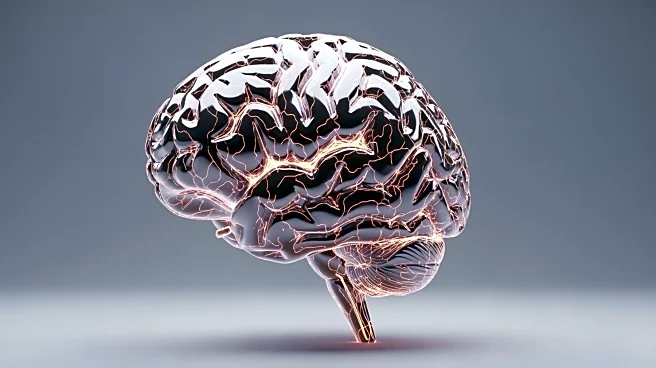What's Happening?
A recent study conducted by the Hebrew University of Jerusalem has uncovered that the human brain operates more efficiently when focused, particularly in predicting and timing sounds. This research highlights
the brain's ability to filter out noise and maintain attention, which could have significant implications for improving hearing aids and attention training programs. The study suggests that when individuals concentrate, their brains are better at anticipating auditory stimuli, allowing them to stay attentive and process information more effectively.
Why It's Important?
The findings from this study could have a profound impact on various sectors, particularly in the development of hearing aids and attention training methodologies. By understanding how the brain enhances its auditory processing during focused states, manufacturers of hearing aids could design devices that better mimic this natural ability, potentially improving the quality of life for individuals with hearing impairments. Additionally, the insights gained could inform educational and cognitive training programs, helping individuals improve their concentration and information retention skills. This research underscores the importance of focus in cognitive processing and could lead to advancements in both technology and educational practices.
What's Next?
Future research may explore how these findings can be applied in practical settings, such as the development of new hearing aid technologies or cognitive training programs. Researchers might also investigate whether similar enhancements in brain function occur in other sensory modalities during focused states. Additionally, there could be interest in exploring how these findings can be integrated into therapeutic practices for individuals with attention deficits or auditory processing disorders. The study opens up new avenues for interdisciplinary research, combining neuroscience, technology, and education.
Beyond the Headlines
This study not only highlights the brain's remarkable ability to adapt and enhance its functions during focused states but also raises questions about the potential for training the brain to improve these abilities. The ethical implications of such training, particularly in educational settings, could be significant, as it may lead to discussions about cognitive enhancement and the potential for unequal access to such advancements. Furthermore, the cultural impact of improved attention and auditory processing could influence how society values focus and concentration in various aspects of life.










